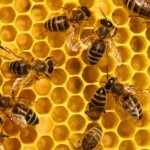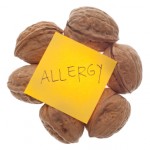I was intrigued by the MedicineNet.com comments on Food Allergy that I mentioned in my last post.I printed off a nine-page discussion, but then went back to check on the background of the article's editor and author. The chief editor, who helped found this website fifteen years ago, is a rheumatologist with what appear to be impeccable credentials. The author is a pathologist, not an allergist, but also seems to have a very solid background.
She mentions that roughly 6-8% of kids have food allergies and 3% of adults. Her discussion is detailed, but crucial in it is the fact that true food allergies involve the immune system and may be life-threatening. Many who develop food allergies have relatives who are allergic to pollens or other non-food items (feathers or medicines, for instance). If both your parents have those kinds of allergic problems, you're more likely to develop food allergies than someone from an allergy-free family.
True food allergic reactions happen soon after ingestion of the nuts or shellfish or whatever causes the problem in a particular person. They may cause mild symptoms (such as oral itching), skin reactions such as hives, gastrointestinal reactions (pain, nausea, vomiting, diarrhea) or led to an asthmatic attack).
I'll copy in the Mayo Clinic website's take on the most severe reaction, anaphylaxis.
"Anaphylaxis is a severe, potentially life-threatening allergic reaction. It can occur within seconds or minutes of exposure to something you're allergic to, such as the venom from a bee sting or a peanut.
The flood of chemicals released by your immune system during anaphylaxis can cause you to go into shock; your blood pressure drops suddenly and your airways narrow, blocking normal breathing. Signs and symptoms of anaphylaxis include a rapid, weak pulse, a skin rash, and nausea and vomiting. Common triggers of anaphylaxis include certain foods, some medications, insect venom and latex.
Anaphylaxis requires an immediate trip to the emergency department and an injection of epinephrine. If anaphylaxis isn't treated right away, it can lead to unconsciousness or even death."
I mentioned an Epi-pen in my previous post on this subject. We keep one in the house since I give my wife her allergy shots; If you've had food reactions that appear to be true food allergy your doctor may want you to have one available.
Adults and kids are more likely to react to those foods commonly served in their particular culture, e.g., rice in Japan, fish in Scandinavia.
And to add to the mix, there are several types of cross-reactivity, e.g., allergic reactions from a food similar to one a person has had a severe reaction to or allergies to fruits (especially melons and apples) during the "hay-fever season" The latter is caused by uncooked foods and may occur in half of those affected by pollens. Typically they are mild, but a tenth of those affected may have more severe problems and 1 or 2% can even have anaphylaxis.
Similarly, some people, usually teens or young adults, can eat a particular food, then exercise and then develop an allergic reaction. Eating two or more hours before exercising seems to prevent this form of food allergy.
There's lots more information, but suffice it to say food allergy should be taken seriously.





